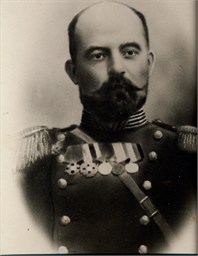The Trump Tripartite
Much like living in America in a post 9/11 world, living in in the aftermath of the Decembrist revolt brought a certain paranoia to the Russian regime. So deep was the neurosis that in 1833 Sergey Uvarov -the Minister of Education of Russia-presented the following statement of ideology : " It is our common obligation to ensure that the education of the people be conducted, according to Supreme intention of our August Monarch, in the joint spirit of Orthodoxy, Autocracy, and Nationality . I am convinced that every professor and teacher, being permeated by one and the same feeling of devotion to the throne and fatherland, will use all his resources to become a worthy tool for the government and to earn its complete confidence. " Thus began The Triad of Official Nationality (Orthodoxy, Autocracy, and Nationality). Although it is understood that interpretations of the Trinity are different than they were in the 19th century, commonalities still exist. In fact, so c...

Comments
Post a Comment